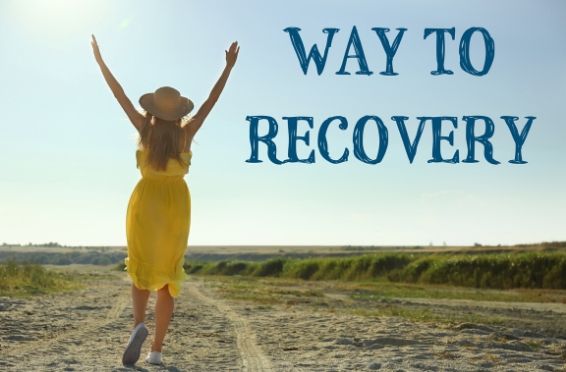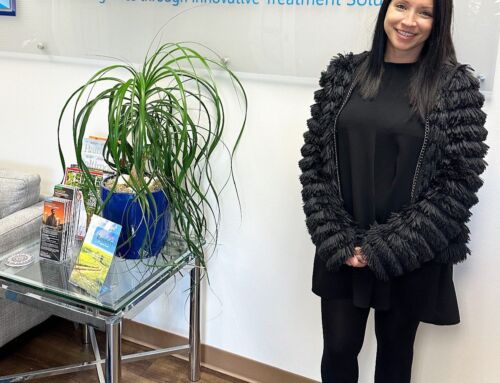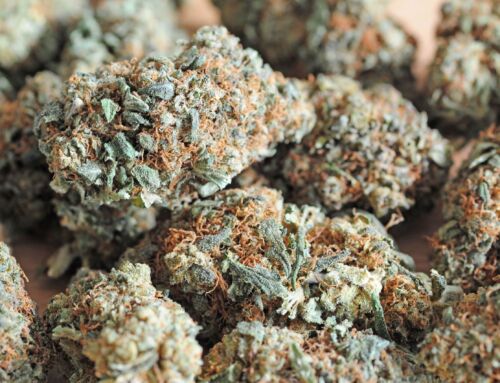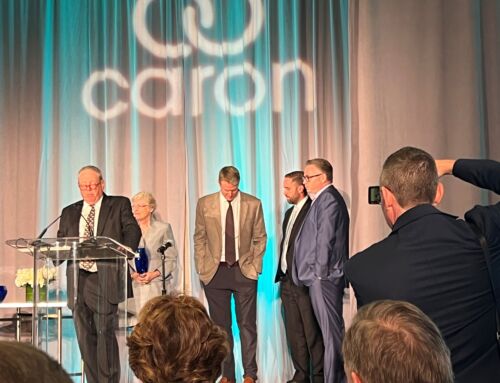Recovery from addiction is achievable, as millions of people around the world can attest. While currently there is ongoing debate in society, in recovery circles, and in the addiction treatment field as to what constitutes “recovery”, as a treatment provider we stay out of that debate. We simply are here to offer individuals and families help when drugs or alcohol are causing problems in their lives and they meet, on some level, the criteria for substance use disorder. For years, the overriding opinion was that “recovery = sobriety” and that was usually defined in the context of 12 Step recovery. However, with so many pathways to recovery, we know today that recovery from addiction means so much more and is much more complex. As a treatment center, we know that we are often just the beginning stages of someone’s recovery journey, and for some people, treatment isn’t even in their story. We know that addiction as a disease requires a life-long recovery process, and that to achieve sustainable recovery takes more than getting sober or going to treatment. So, the question is, for the millions of individuals and families still impacted by active addiction, not how someone finds recovery, but how someone can sustain recovery and, ultimately, find long-term (and hopefully lifelong) recovery from addiction.
Because we know that recovery can mean different things to different people, and not everyone’s journey of recovery looks the same, we asked multiple people with different experiences, but who all have found long-term recovery, how they did it. How did the not just overcome active addiction, but how did they find long-term recovery? What did they do to find a recovery that was ongoing and sustainable?
Most of the people we asked told us that they found recovery through the 12-Step fellowships, places like Alcoholics Anonymous and Narcotics Anonymous. They told us that it was through the 12-Step fellowships that they found hope, that they asked for help, that they found a sponsor and took the 12 Steps. These were also the places that they felt safe, could find people they could identify with, and found fellowship. All of them equated recovery to sobriety. Many of them told of staying sober for years or decades on end, while some mentioned having relapses along the way. Of those that mentioned their path of recovery being 12 Step-based recovery, some did mention that sobriety was key for recovery, but that sobriety and recovery are not necessarily the same thing. Many mentioned people that they knew that were sober, but ultimately unhappy and still exhibiting the same behaviors as someone in active addiction would, and these people reported that they did not necessarily believe that was recovery. They believed recovery included sobriety, but that changing behaviors and attitudes, being “of service”, a connection with a Higher Power and a connection with other people were necessary to truly be “in recovery.”
Other people we spoke with reported that they found recovery outside of the 12 Step fellowships. Some of these people mentioned at one point in time or another they had visited or been a part of Alcoholics Anonymous or Narcotics Anonymous (or other 12 Step programs) but ultimately found recovery elsewhere. Some mentioned SMART Recovery meetings or Celebrate Recovery. A few mentioned the group known as Refuge Recovery. But the group said that for whatever reason, each found a reason why the 12 Step meetings were not for them but found long-term recovery in another type of community support system.
Other people we spoke with didn’t mention any of these types of mutual aid groups or self-help groups at all. Instead, they pointed out the more clinically therapeutic ways in which they found recovery from addiction. Many sought out therapy or psychiatry. They mentioned seeking professionals (sometimes in one way, sometimes incorporating multiple types of clinical and professional help) that ultimately helped them overcome addiction. Most of the people in this group detailed that their recovery started in therapy, but it also was sustained through ongoing therapy and clinical services. Most of the people in this group talked about having seen a therapist, a counselor, a psychiatrist or other types of therapeutic and clinical support for many years. Most of them continue to see a professional. They believe that this ongoing therapeutic and clinical support and insight helps them to sustain their recovery.
Another group of people focused more on what may be described as a holistic approach or a lifestyle change. They talk about finding recovery from addiction through the enthusiasm for an activity or healthy outlet, such as exercise, working out or overall fitness, yoga, meditation, or other similar practices. Most of this group discussed how they found a group of friends that were trying be more healthy and live better lives, and through that type of fellowship that began to engage in an overall lifestyle change that continually moved towards health, which in turn brought them happiness.
Not all these groups are separate from one another. Throughout all the groups, many people mentioned that while they believe their long-term recovery came from 12-Step fellowships, they also were in therapy. Many people mentioned making sure their mental health issues were also taken care of appropriately, using medication. Most everyone, regardless of the group they ultimately fell into, included some type of healthy lifestyle changed that focused on either physical, mental, emotional, or spiritual growth, and in some cases all the above.
So, the underlying truth of sustainable, long-term recovery seems to be that while there are many pathways to recovery and individuals may define their own personal recovery from addiction in different ways, that every pathway found by the people we spoke with all included the following factors:
-
- Change. Every person, regardless of their chosen method, detailed drastic changes in their lives that led to major changes in their thinking, attitude, and behaviors. They detailed major changes that led to changes in outlook and a shift in perception.
-
- Growth. Every person we spoke with talked about growth. Growing emotionally by gaining insight. Growing spiritually. Finding paths that led to personal growth or professional growth. They talked about challenging themselves or being challenged in order to grow.
-
- Support. Each person discussed how, regardless of their chosen pathway of recovery, they could not overcome addiction alone. In some form or fashion, they all, in their own way, reached out for help. Sometimes it was reaching out to others that had dealt with similar issues. Sometimes it was through therapy or professional help. Sometimes it was to a group that was living in a more healthy, productive way. But in every situation, the person asked for help and then gained ongoing support. Sometimes through a 12 Step fellowship or another group setting, sometimes through ongoing therapy and medication, sometimes through a group of people walking a similar path of healthy living, but each person detailed how asking for help and then leaning on that help for ongoing support was key in their journey.
-
- Connection. Just as in asking for help, each person detailed how it was through a new group of people that they found love, support, and connection. This did not necessarily mean getting rid of old social circles and friends, but many people detailed how they needed to shed people that did not offer positivity or support when they needed help, and these same people talked about shedding people that brought them down, offered negativity, or were “toxic.” In other cases, this meant connection through specific fellowship of 12 Step programs, or the people that they met in other group settings. Sometimes this meant the important and deep connection with a therapist or professional. For many in the holistic group, they talked about finding connection and friendship with people who had similar goals, motivation, and direction. But in all cases, each person described how deep and meaningful connection to others was key to find long-term recovery.
-
- Service. Every person, regardless of recovery pathway, described a changed mindset of giving back or helping others, in one way or another. For those in the 12 Step fellowship group, it was clearly defined in terms of giving back to those in the rooms, sponsorship or through service commitments. But each person detailed how through their journey of recovery, they either found the mindset of helping others important or how that, through their process, they have found a natural and organic shift in their mindset that being of service is vital to lasting recovery. Some talked about how lonely they felt in addiction, so they feel a need to give back to others still suffering. Some talked about a bigger mindset of helping those in need in different situations, not just those suffering from substance use disorder. Some talked about volunteering or getting involved in charity work.
-
- Something Bigger. Often, by those in the 12 Step rooms, this is described as finding a “Power greater than yourself.” Many 12 Steppers refer to God as that Power, but are clear the literature of the 12 Step fellowships detail that each person can define their own Higher Power. Across the board, each person we talked with mentioned finding something greater than themselves. However, in many cases, this did not mean God or a Higher Power. In many cases, this meant just finding purpose outside themselves. Being part of a group or a community. Each person mentioned in some way how their recovery was contingent on thinking about their problems less and thinking about being part of something bigger more. Being part of a family was mentioned. Trying to better their community was mentioned. Once said “Since I found recovery, I just want to make the world a better place.” Sometimes people mentioned specifically God or a Higher Power. Others mentioned returning to a religion of their youth or finding something through a different religion or a general spiritual practice like Buddhism. But each and every person mentioned that their recovery was in some ways tied to something greater than themselves.
- Gratitude: Every person, regardless of what pathway of recovery they detailed or identified with, mentioned cultivating an ongoing attitude of gratitude and thankfulness. They discussed attempting to do so each day, through different types of practice or habits. Some mentioned specific actions like prayer, or a gratitude list, or journaling. Others said this mindset came naturally, either quickly when they found recovery, or it developed over time as they saw the benefits of such an attitude and outlook. But each person mentioned how a positive attitude, often associated with gratitude or thankfulness, led to a more harmonious life that supported their long-term recovery.
We know that not everyone’s recovery looks different. We know that there is a lot of discourse out there regarding what recovery is, what it should look like, how it should be defined, or even if it can be defined at all outside of an individual’s own personal definition. However, we believe that recovery means change and recovery means leaving a life is isn’t working to finding a quality of life that does. And based on the people that we talked with, all of whom have different experiences and different personal definitions of recovery, we found several common denominators that seem to define how someone can achieve a long-term recovery from addiction. Change. Growth. Support. Connection. Service. Something bigger than themselves. And Gratitude. These are the things that were mentioned across the board, regardless of the chosen pathway, that each and every person we spoke with specifically mentioned in what help them not only enter recovery, but find what they reported as a long-term, sustainable recovery that ultimately brought them freedom, happiness, meaning, and quality of life.
If you or someone you know needs help for addiction or co-occurring disorder issues, please give us a call. Maryland Addiction Recovery Center offers the most comprehensive dual diagnosis addiction treatment in the Mid-Atlantic area. If we aren’t the best fit for you or your loved one, we will take the necessary time to work with you to find a treatment center or provider that better fits your needs. Please give us a call at (410) 773-0500 or email our team at info@marylandaddictionrecovery.com. For more information on all of our drug addiction, alcohol addiction and co-occurring disorder services and recovery resources, please visit our web site at www.marylandaddictionrecovery.com.

Table of Contents





